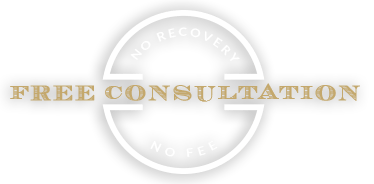Q How Can A Lawyer Ethically Represent Someone He Knows To Be Guilty
January 12, 2016
LOOK TO THE LAW
Clients and friends have asked me many of the same questions over the course of my career. This is one in an ongoing series of “lawyer questions and answers”. Hopefully, this will be useful to you, or at least interesting.
A: This is perhaps the hardest aspect of our legal system for people to understand, here goes.
The structure of our legal system is widely regarded as the best framework ever devised in the history of mankind. It is the fairest, and usually (not always) results in the correct outcome. Other legal systems through thousands of years of history have not permitted the accused to have an attorney, deprived the accused of the right to see the evidence against him before trial so as to prepare, denied the accused the right to call witnesses in his own behalf, forced the accused to testify against himself, etc. Many of these systems are still in use in other countries today.
Think of our legal system as a “tug-of-war” in which each person involved has role which he must play. There is Team A pulling on one side of the rope as hard as they can, Team B pulling on the other side of the rope as hard as they can, a referee to make sure no one cheats, and someone watching the contest and deciding who wins.
Team A is the prosecution attorney, Team B is the defense attorney. The referee making sure no one cheats is the Judge. The decider of the winner is the jury. When everyone sticks to their role, the contest is fair, and the outcome is proper.
But imagine if any one of the participants refused to stick to his role. The game would be perverted, and the outcome would be unfair.
For example, if Team B (the defense attorney) stopped pulling hard on his side of the rope, having decided that his client was probably guilty anyway, the outcome would be obvious, and Team A would win. In other words, by failing to vigorously play his role, the defense attorney would have decided the outcome which is the role of the jury.
For further example, imagine that Team A (the prosecutor) stopped pulling hard on his end of the rope because he thought the defendant was a wonderful guy who should not go to jail. By failing to play his role, the prosecutor would have decided the outcome, which is the role of the jury.
Similar unfair outcomes would result if the Judge allowed the participants to cheat, or if the jury decided the verdict by tossing a coin. Every participant must play his role diligently in order for the entire system to work. When that occurs, the system does work.
This is why an attorney can defend someone whom he personally thinks is guilty. It is not up to him to decide whether the person is guilty, and if he does make that decision, he is not playing his role in this structure. The defense attorney cannot refuse to defend his client vigorously, or he is perverting the entire system.
Just a note. Defense attorneys can sleep at night because where a defendant is, in fact, guilty, he is usually found guilty despite the vigorous representation of his attorney. Where the defendant is innocent, he is usually found “not guilty” because of the vigorous representation of his attorney. In other words, the contest is decided by defendant’s factual guilt or innocence rather than by rules of the game being broken.
Jack Hoyt, Esq





